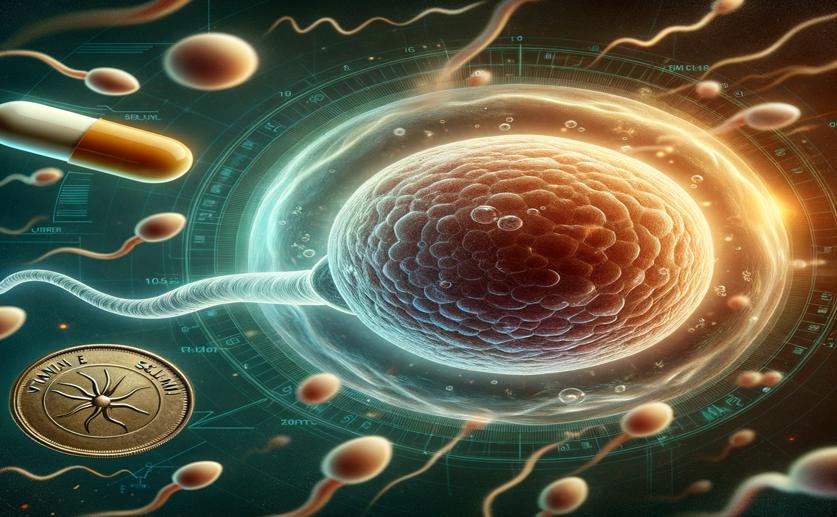
Vitamin E and Selenium Injections Boost Sperm Health and Fertility
Jenn Hoskins
8th August, 2024

Image Source: Natural Science News, 2024
Key Findings
- The study conducted at Cairo University found that higher doses of vitamin E and selenium significantly improved the quality of both fresh and frozen semen in subfertile rabbits
- Testosterone levels and total antioxidant capacity increased significantly in rabbits receiving higher doses of vitamin E and selenium by the second week of treatment
- Fertility outcomes, including conception and kindling rates, were significantly higher in does inseminated with semen from rabbits treated with higher doses of vitamin E and selenium
References
Main Study
1) Repeated injections of vitamin E and Se improves testicular morphology, testosterone and in vitro and in vivo sperm fertility in subfertile rabbits
Published 7th August, 2024
https://doi.org/10.1007/s11259-024-10439-4
Related Studies
2) An evaluation of the protective role of α-tocopherol on free radical induced hepatotoxicity and nephrotoxicity due to chromium in rats.
3) Effects of Organic Selenium on the Physiological Response, Blood Metabolites, Redox Status, Semen Quality, and Fertility of Rabbit Bucks Kept Under Natural Heat Stress Conditions.
4) Melatonin can improve viability and functional integrity of cooled and frozen/thawed rabbit spermatozoa.



 2nd July, 2024 | Jenn Hoskins
2nd July, 2024 | Jenn Hoskins